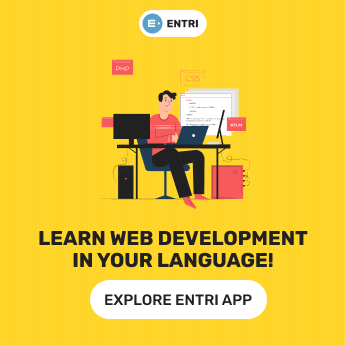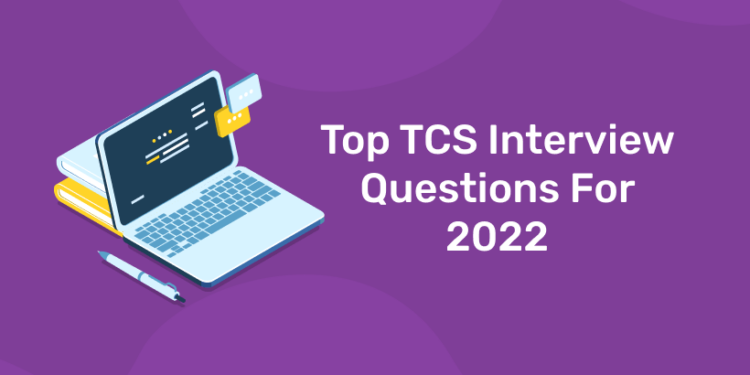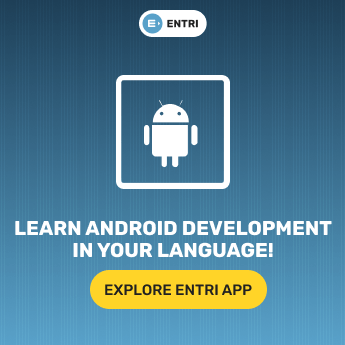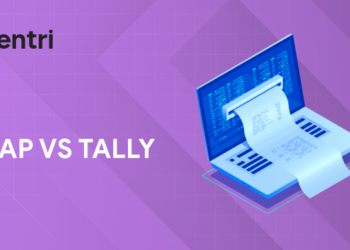Table of Contents
Tata Consultancy Services is an Indian multinational information technology company headquartered in Mumbai, with main branches in Pune, Bangalore, Hyderabad, and other cities. TCS is the largest IT company in India.
Recruitment process in TCS:
TCS conducts three rounds of interview to select any fresher candidate as a software developer in their company.
- Aptitude test
- Technical interview
- HR interview
The recruitment drive of TCS starts with a written test followed by face to face interview. A recruiter may also conduct campus group discussion for software engineer candidates.
Following are frequently asked TCS interview questions for freshers as well as experienced candidates to get the right job for their career.
1) Which programming languages are important for TCS campus interview?
Important programming languages for TCS campus interviews are 1) C programming, 2) C++ programming, and 3) Java programming.
2) What is the primary difference between C and Java?
The primary difference between the two is that Java is an object-oriented programming language, whereas C is a procedural programming language.
3) Name four storage classes available in C.
Four storage classes available in C languages are 1) register, 2) auto, 3) extern, and 4) static.
4) Explain static variable.
It is an access specifier. The value of a static variable does not change during the execution of the program.
5) How to print an address?
You can use %p in printf function to print an address of a variable.
6) Explain function overloading concept.
It is a feature of C++ that allows you to create more than one function with a similar name. Functions can be identified using their parameters.
7) Explain two integrity rules used in DBMS.
- Referential integrity rules
- Entity integrity rules
Referential integrity rule states that the database does not contain orphan record foreign key values. In this case, the primary key value cannot be modified if you have used this value as a foreign key in the child table.
In entity integrity rules, you cannot keep the primary key value null.
8) Define the term’s classes and objects.
Class is a building blog of object-oriented programming which contains a group of data member and its function. You can access them by creating an instant class.
An object is a real-world entity. Some examples of the object are computer, notebook, pen, and bag.
9) Define macros.
A macro is a preprocessor directive which replaces the value of a macro.
10) Differentiate structure and arrays.
The primary difference between structure and array is as follows:
- An array is a data structure. It contains a group of similar data types.
- The structure is user define data type. It contains a group of dissimilar data types.
11) List out some areas in which data structure is applied extensively.
Following are the areas in which data structure is used:
- Numerical analysis
- Database management system
- Artificial intelligence
- Operating system
- Statistical analysis package
12) How can you reuse code written in C++ programming language?
You can use inheritance technique to reuse code.
13) Name various deadlock prevention techniques.
Deadlock prevention techniques are:
- Mutual exclusion
- Resource holding
- No preemption
- Circular wait
14) What is insertion sort and bubble sort?
Insertion sort is a sorting algorithm in where the final list or array is built having one item at a time. In bubble sort, you interchange adjacent elements if the order is not proper.
15) Explain the concept of doubly link list.
A link data structure called a doubly link list includes a link back to the previous node.
16) You are creating a function which can accept a variable number of arguments. Which header file you will include?
We need to include stdarg.h header file.
17) What do you mean by data abstraction? Explain three levels of data abstractions.
Data abstraction is a process of recognizing the characteristics of an object or any situation and filtering out unwanted characteristic.
Following are three levels of data abstraction:
- Physical level: Depicts how you will store data in the database
- Logical level: Depicts what data is sorted in the database
- View level: End-user work on this level, and if any changes found, they will be saved by another name.
18) Explain what command-line argument in C is?
It is a process of getting arguments from the command prompt in C programming. There are three arguments in C main function. Argument counter, Argument vector, and environment vector.
19) Explain the concept of cache memory.
A cache is a small size computer memory that is used by CPU to reduce average cost to access data from main memory.
20) Explain the difference between pass by reference and pass by value.
In pass by value, we pass the value to calling function. In Pass by reference, we need to pass the address to the caller function instead of passing the value.
21) What is a pointer?
A variable which stores the address of value located in memory is called pointer.
22) Differentiate between null and void pointer.
A null pointer is a pointer which points to nowhere. It has the value zero. Void pointer is a generic pointer which is introduced by ANSI (American National Standards Institute).
23) What is operator overloading?
Operator overloading is a polymorphism which allows existing operators to be redefined so that they can be used on objects of user-defined classes.
24) What are the different types of inheritance available in C++?
There are five types of inheritance in C++ programming. They are 1) Single inheritance, 2) Multiple Inheritance, 3) Multi level Inheritance, 4) Hybrid Inheritance, and 5) Hierarchical Inheritance.
25) Why normalizes a database?
A database should be normalized so that you can organize a database efficiently. You should also normalize a database to remove redundant data.
26) What is DBMS?
DBMS stands for Database Management System. It is a software used to manage your database. DBMS provides an interface between application and databases.
27) Explain conditional statements.
Conditional statements are also known as a conditional expression or if-then statement. Conditional statements are a set of rules. These rules will be executed only if the condition is true.
28) Explain the difference between the foreign key and the referenced key.
A foreign key is used to link to tables. On the other side, the reference key is a primary key that is referenced in the other table.
29) Explain the difference between C and C++?
| C++ | C |
|---|---|
| C++ has a class concept | C did not have a class concept |
| C++ does not support function overloading concept | In C programming, we use various functions like scanf() and printf() for input and output. |
| C++ supports exception handling. | C does not support exception handling |
30) What is an array?
An array is a data structure which contains similar elements. The necessary condition to use an array is that all array elements should have the same data type.
31) Explain memory allocation in C.
There are three functions to allocate memory in C. They are as follows:
- calloc(): This function allocates memory and initializes this memory block to zero. It returns a pointer to the block of memory.
- malloc(): This function reserves a memory area, and it returns a pointer of void type.
- free(): This function release allocated memory.
32) What is a clustered index?
Clustered index reorders records in a way they physically stored in a table.
33) What do you mean by debugger?
A debugger is a computer program. It is used to debug and test other programs.
34) What is the main difference between const char *p and char const *p?
Both are pointers to a constant Char. However, if you write char * const p, then this will declare ‘p’ as a constant pointer to char.
35) Explain Memory Alignment.
In Data structure, memory alignment is a method to arrange the data and access in the memory block.
36) Explain conversion constructor.
It is a single parameter constructor, that is declared without ‘explicit’ function specifier. Conversion constructor can be called with a single parameter (until C++11) is called a converting constructor.
37) Explain the concept of Tree.
Tree is an abstract data type. It represents the nodes which are connected by edges.
38) What is data warehousing? Why should we use data warehousing?
A data warehouse is a business intelligence tool that stores data from operational databases as well as from external sources. It supports decision-making process in an organization.
We should use a data warehouse to ensure consistency of collected data. It also helps business leaders to develop data-driven strategies.
39) How many types of recursions are there in C?
There are mainly six types of recursion: 1) linear recursion, 2) tail recursion, 3) binary recursion, 4) exponential recursion 5) nested recursion, and 6) mutual recursion.
40) Explain compiler and interpreter.
- A compiler is a program that process code written in C and convert into machine language.
- An interpreter is a program that directly executes C code without compiling into machine language.
41) Explain scope of a variable.
Scope means visibility of any variable. Visibility of variable is limited to program or function.
42) What is a user-defined exception in Java programming?
The keywords try, catch, and finally are used to implement a user define custom exception Java. In java, you can create an exception class and throw an exception using throw keyword.
43) Explain garbage collector.
In Java, a garbage collector is a program that manages memory automatically and removes unused objects.
44) What is enumeration?
It is a user-defined data type that is used to assign names to constants. It makes the program easy to read.
45) What do you mean by static identifier?
The static identifier is initialized only once, and its value retains during the lifetime of the application. The memory value allocated by the static variable can be used between the function call. The default value of an uninitialized static identifier is zero.
46) Explain encryption.
It is a process of converting text into code. The primary purpose of encryption is to prevent unauthorized access.
47) What is decryption?
It is the transformation of encrypted data and converting it into meaningful text that you can read and understand.
48) What is a digital signature?
It is a technique used to validate the authenticity of the message. A digital signature is actually an encrypted version of the message digest.
49) Name the basic principles of OOPS.
The four basic principles of Object-Oriented Programming System are 1) Abstraction, 2) Inheritance, 3) Encapsulation, and 4) Polymorphism.
50) Define Polymorphism.
Polymorphism is a concept used in Object-Oriented Programming. Polymorphism allows you to perform a single action in different ways.
51) What is SDLC?
Software development life Cycle or application development lifecycle is a term used in software engineering to describe the process of developing software. This process contains 4 phases: 1) planning, 2) creating, 3) testing and 5) deploying.
TCS is one of the most sought-after companies by IT professionals owing to its collaborative and supportive culture and worldwide recognition as a global leader in the IT sector. Every year TCS provides diverse job opportunities for applicants in various fields. To nail the opportunity at TCS, applicants must brace up for the most challenging TCS interview questions with strategic preparation and consistent practice.
Grab the opportunity to learn web development with Entri
TCS Recruitment Process
Written Exam
The time allotted for the written test is 60 minutes, and it consists of four sections – Quantitative Aptitude, Programming Language Efficiency, Coding Test, and E-mail Writing.
Technical Interview
Basic questions based on the resume, branch of specialization, and professional skills are asked, along with a few trickier ones.
Managerial Interview
The TCS interview questions asked in this round depend on the interviewer and range from general technical and HR questions to puzzle questions to gauge your reaction.
HR Interview
It is the final round of the recruitment process. Apart from the usual HR interview questions like strengths and weaknesses, hobbies and background, etc. Questions on work experience and educational background can be expected.
Academic Criteria
Eligible candidates need to have a minimum of 60% result throughout their degree with no backlog. A gap of two years in the career is permissible provided a valid explanation.
Ace your coding skills with Entri !
TCS Technical Interview Questions
- Define socket programming and mention the benefits and drawbacks of Java sockets.
- Define IPsec and mention its components.
- What do you mean by subnet mask?
- Define NAT.
- What do you understand by piggybacking?
- What is database schema and its types?
- Differentiate clustered and non clustered indexes.
- What is round trip time?
- Define ping.
- List some points about SLIP?
- What do you understand about Ethernet?
- What do you mean by tunnel mode in networking?
- Write about the RSA algorithm in brief.
- What is cyclomatic complexity in a software program?
- Give an example of the time when you didn’t find a bug in black box testing but discovered it in white box testing.
- What is slice splicing in software testing? What are its two types?
- Differentiate between AWT and Swing in Java.
- Explain memory leak in C++. How can you avoid it?
- What do you understand by a command-line argument in C?
- What do you mean by concurrency control?
- What do you understand about SQL correlated subqueries?
- Define a checkpoint in a database management system, and when does it eventuate.
- What are the two integrity rules in a database management system?
- What exactly are macros? What are the benefits and drawbacks?
- Differentiate between the Java Development Kit (JDK), Java Runtime Environment (JRE), and Java Virtual Machine (JVM).
- What is the method to swap two numbers without using a third variable?
- Mention the code to reverse a given number using command line arguments.
- What is meant by cycle stealing?
- Mention the two concepts of swapping in the context of OS? How does swapping help in better memory management?
- What is the RR Scheduling Algorithm in OS?
- What are interrupts?
- Explain the functionality of the linked list.
- Mention the four basic principles of OOPS?
- What is inheritance?
- What is the method of inheriting the variable of one class to any other class?
- What is polymorphism?
- What are the different types of inheritance?
- Differentiate between classes and interface.
- What is the software development life cycle?
- Define the normalization of databases, joins, and keys.
- What are loops?
- Explain about Joins, Views, Normalization, and Triggers.
- List different advantages of DBMS.
- What is a Database Management System?
- What are the conditional statements?
- Differentiate between the foreign key and reference key?
- List the differences and similarities between C and C++?
- Mention the structural difference between bitmap and b-tree index?
- Differentiate between socket and session?
- What is an array?
- If you are given an array of 1s and 0s, how can you arrange the 1s and 0s together in a single array scan? Optimize the boundary conditions.
- Define data abstraction. What is their importance?
- Mention a function to swap two numbers without using a temporary variable.
- What is memory allocation in C/C++?
- Write the output of the program?
- Define virtual function and pure virtual function.
- What are WPF and WCF?
TCS Interview Preparation
Ace your coding skills with Entri !
Interview Preparation Tips
1: Which of the following data structures allows elements to be added and removed in a Last-In, First-Out (LIFO) order?
- Do your research on the company.
- Develop a practice of explaining your approach and viewpoint to the interviewer.
- Practice the best approach to answer the most expected TCS interview questions.
- Enroll for mock interviews to boost your confidence.
grab the opportunity to learn web development with Entri
Build Better, Together. 🛠️ Join the Entri Coding Community!
Beyond syntax, there’s strategy. 🚀 Join our subreddit for: Exclusive Coding Roadmaps 📍,Project Case Studies 📂 ,Interview Prep Tips 💡and more
👉 Join our Reddit communityFAQs
1. Does TCS NQT have coding questions?
Yes, TCS NQT has coding questions which you can attempt in any of the five languages given by TCS, including Java, Python, and Pearl.
2. Who is eligible for TCS NQT?
Full-time graduates in B.E., B. TECH., M.E, or M.TECH with 60% throughout academics, including 10th, 12th, UG, and PG courses, are eligible for TCS NQT.
3. What is the salary for freshers in TCS?
The average salary for freshers in TCS range from ₹1.6 Lakhs to ₹3.6 Lakhs per year.
4. What kind of coding questions are asked in TCS?
The TCS coding section consists of problems on arrays, numbers, sortings, strings, and number systems.
5. What are the basic questions asked in a TCS interview?
Questions regarding your resume, skill set, and educational and family background are some of the basic questions asked in the TCS interview.
6. What is TCS ninja?
It is a job role offered by TCS to fresh recruits, who are mapped to a unit based on their TCS Xplore program performance.
7. How many rounds of interviews are there in TCS?
The TCS recruitment process consists of four rounds that candidates need to clear before moving to the final step.
8. Is the TCS interview tough for experienced?
TCS interview is not easy, but it is not tough to crack for the experienced candidates with the right and strategic preparation.
Conclusion












